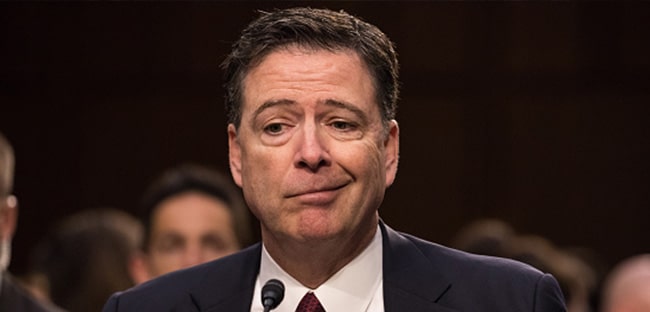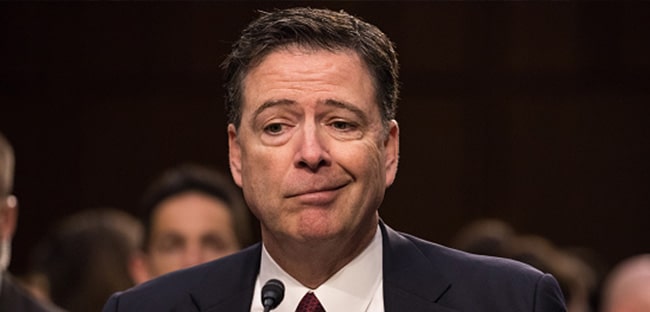US Attorney and Special Counsel John H Durham’s laborious investigation into the origins of allegations that Donald Trump’s 2016 presidential campaign illegally colluded with Russia’s government finally seems to be bearing fruit. In the latest development, a federal grand jury indicted Igor Danchenko, who was the primary researcher for claims that went into the Steele dossier, a compendium of salacious rumors and reports that Russian intelligence had obtained highly compromising material on Trump, causing him then to conspire with Moscow to help defeat Hillary Clinton and to otherwise serve Russia’s interests.
Danchenko was the second major figure associated with the questionable origins of the “Russiagate” scandal that dominated political debate and news media coverage throughout Trump’s presidency to be indicted. In mid-September, a grand jury indictment was handed down against cybersecurity lawyer Michael Sussmann, for lying to the FBI. Both Sussmann and Danchenko had worked for firms that the Clinton campaign employed to promote the Steele dossier and other Russia collusion allegations. The affiliations of the two men raise new doubts about the sourcing for the Steele dossier and the other “evidence” against Trump
These developments are potentially very significant. The Steele dossier was an important (perhaps even the key) catalyst for the “Crossfire Hurricane” investigation into the Trump campaign that the FBI launched in late summer 2016. It is hard to believe that even the usually rubber stamp Foreign Intelligence Surveillance Act (FISA) court would have issued investigative warrants based on what meager justifications the FBI had absent the overblown Steele dossier. Indeed, the FBI had to go to great (and unethical) lengths to perpetuate the investigation once the Steele dossier began to unravel.
The most troubling conduct occurred regarding investigative warrant applications aimed at Carter Page, a foreign policy adviser to the Trump campaign. A report submitted by Michael Horowitz, the Justice Department’s Inspector General, in December 2019 identified multiple violations of required FBI procedures. In one instance, FBI assistant general counsel Kevin Clinesmith even altered a document to make it appear to state the opposite of its original language about Page’s role. Clinesmith entered a guilty plea to federal charges for that offense in August 2020. Such desperate scrambling by the FBI suggests that the Agency didn’t have much evidence to sustain its charges (or even its warrant applications) except for the Steele dossier.
The Trump administration and its conservative supporters have long charged that the basis for both Crossfire Hurricane and the subsequent investigation headed by Special Counsel Robert Mueller was unwarranted, suspicious, and probably corrupt. According to that thesis, the inquiries were a political and ideological vendetta waged by the Obama administration, the Clinton campaign, and the “deep state”—high level officials in the FBI and the intelligence agencies. If Trump and his allies are right, Russiagate was a disturbingly successful effort by rogue elements in the permanent bureaucracy, in alliance with one political party, to undermine a duly elected president.
Both the bipartisan political establishment and the deep state had ample reason to worry about Trump during and immediately following the 2016 campaign. Much of the fear and anger directed against him was because he expressed heretical views about America’s military alliances, free trade, regime-change wars, and other crucial components of the globalist-interventionist orthodoxy that had governed Washington’s approach to world affairs since World War II. The irony was that once in office, Trump’s foreign policy did not differ markedly from that of his predecessors (with the partial exception of his protectionist trade initiatives), but his rhetoric frequently was brusque and candidly nationalistic. Members of the political establishment, the national security bureaucracy, and most of the mainstream media were committed to the status quo, and they found such statements not only unsettling, but deeply offensive, ignorant, and intolerable, even when corresponding “isolationist” actions did not follow.
Not surprisingly, those same factions have ridiculed right-wing allegations about Russiagate being a deep state plot. However, the indictments of Sussmann and Danchenko suggest that concerns about the foundation of and motives for the FBI and Mueller investigations should not be dismissed so casually.
Indeed, the entire Russiagate episode had a rather bizarre and disturbing quality from the outset. Trump’s opponents implicitly (and sometimes explicitly) accused him of treason. During previous eras, such an accusation directed against a major party’s presidential nominee, much less against the president of the United States, would have been greeted with either stony silence or ridicule in government circles and the news media. When leaders of the ultra-conservative John Birch Society made a similar accusation in the 1950s that Dwight Eisenhower was an agent of the Soviet Union, no mainstream publication or credible member of Congress embraced that charge. Such an allegation seemed too preposterous even in the middle of the hysteria that Senator Joseph McCarthy had unleashed about a widespread domestic communist conspiracy.
It was a measure of the extreme political polarization and the extent of hostility toward Trump among his critics that major congressional and press figures not only treated a similar far-fetched allegation seriously, but assumed that it was true. Indeed, no allegation against Trump or his advisers seemed too outlandish to be used. Prominent congressional Democrats, such as California representatives Adam Schiff and Eric Swalwell, and New York representative Jerrold Nadler, were especially eager to push the Russia conspiracy narrative.
Revelations coming out of Durham’s investigation are not yet sufficient to confirm the thesis that the Russia collusion charges were nothing more than a partisan smear cynically aided and abetted by the FBI and the intelligence apparatus. We must wait and see what else emerges from the ongoing inquiry before reaching such a definitive conclusion about pervasive legal violations. However, the information that intrepid investigative reporters, especially Glenn Greenwald and Matt Taibbi, presented over the years already have debunked nearly all of the allegations made against Trump and his campaign. If the Durham investigation now documents that the accusations were orchestrated fabrications, it will confirm that some very powerful agencies and their leaders, past and present, pose a serious threat to the health of America’s democratic political system.
Reprinted with permission from Antiwar.com.


